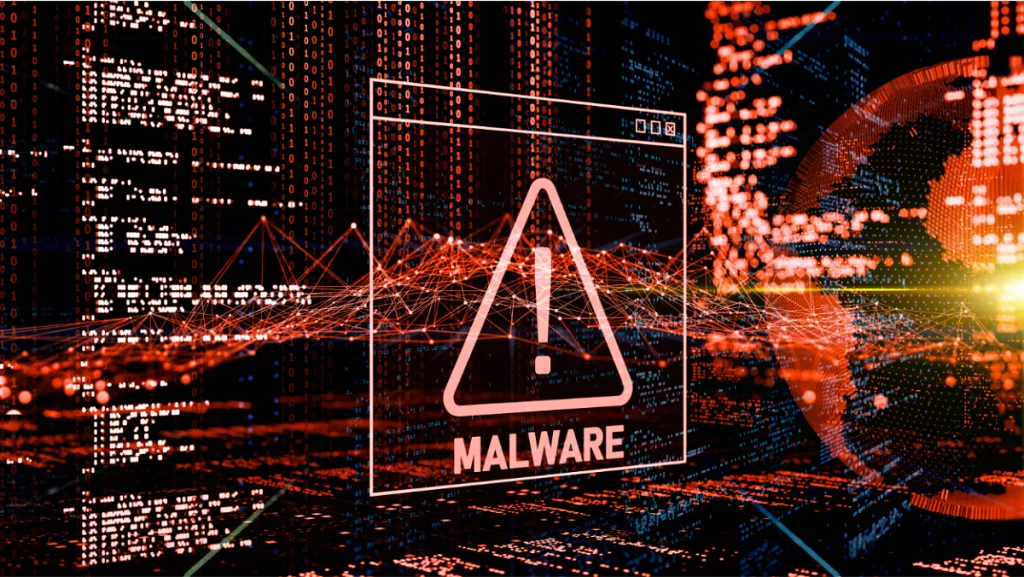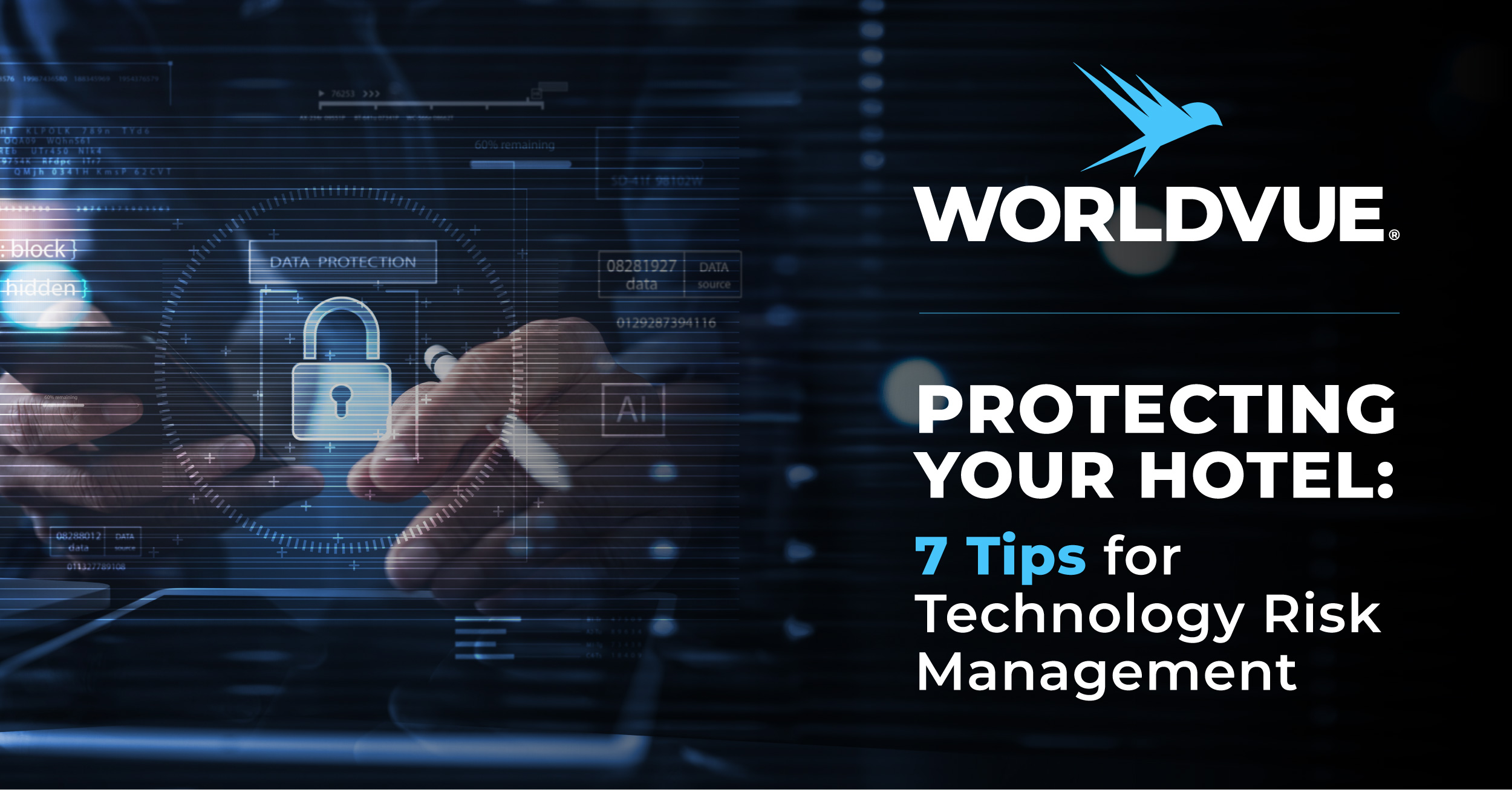Table of Contents
The headlines are stark:
“Hackers say they stole 6 terabytes of data from casino giants MGM, Caesars.” -Reuters
“Casino giant MGM expects $100 million hit from hack that led to data breach.” -CNN
“Caesars Entertainment Hit with Class Action Over August 2023 Data Breach.” -ClassAction.org
Recent headlines have trumpeted the dire consequences of data breaches in the hospitality industry. But data breaches aren’t the only risk. To avoid ending up in the headlines for the wrong reasons, your property will need a comprehensive plan for technology risk management. Here are some things to watch out for and tips you can use to refine your strategy.
Common risks and responses
1. Data breaches
Perhaps the most significant risk in hotel technology involves data breaches. Hotels typically handle a vast amount of sensitive guest data, including personal details and payment information. When a breach occurs, this affects all your guests. Such events can lead to significant financial penalties and losses, as well as damage to your reputation. Robust cybersecurity measures such as encryption, firewalls, security monitoring, and audits can help hotels mitigate this risk. Compliance with data protection regulations such as GDPR and PCI DSS can also help prevent breaches.
2. Physical security
A lack of physical security can also leave your hotel’s systems vulnerable to attack. Potential problems include unauthorized access to restricted areas and theft of guest devices. These can compromise the security and privacy of guest data and operational data. Preventative measures can include access controls, alarms, and CCTV surveillance systems to monitor suspicious activity and deter intruders. Hoteliers should also educate their staff on security protocols (such as keeping particular doors locked when rooms are not in use).
3. Network security
Insecure networks, particularly WiFi networks, are at risk of potential hacks that expose guest information and other business data. To prevent this, hoteliers need to ensure that they’re using encryption and strong passwords for their WiFi networks. It’s also essential to keep all equipment updated and to implement measures to prevent unauthorized access, such as frequently updated firewalls and antivirus software. For more comprehensive technology risk management, ongoing traffic monitoring can also help spot suspicious activity. A Web Application Firewall (WAF), bot management, and Application Protocol Interface (API) defenses, as well as Distributed Denial of Service (DDoS) mitigation services, can help protect your servers and networks by filtering incoming traffic.
4. Unauthorized access
Weak or default passwords, inadequate access controls, and outdated software, firmware, and hardware can all leave your systems vulnerable to unauthorized access. To prevent this, hoteliers should implement strong password policies and use multi-factor authentication. They should also use role-based access controls to limit access to sensitive information so that only those who need it can access it and only in limited ways. Again, regular updates to system components can also help protect your hotel’s systems from unauthorized access.
5. Ransomware attacks
In a ransomware attack, an unauthorized person takes control of your systems and denies you access until you make a ransom payment. These attacks can significantly disrupt hotel operations by blocking you from using critical systems. To defend against ransomware attacks, hoteliers must go beyond encryption, monitoring, regular updates, and strong passwords. You need to implement robust backup and disaster recovery plans in case of an attack so you won’t lose access to all your systems and data.
6. Internet of Things vulnerabilities
In recent years, hotels have continued to add numerous devices with Internet of Things (IoT) capabilities. These include smart thermostats, door locks, voice assistants, and more. While such devices can improve the guest experience, they can also introduce security risks if they’re not properly secured. Thus, as always, hoteliers should ensure regular updates of IoT devices to patch known vulnerabilities and implement encrypted communications. It’s important to conduct security assessments of new devices before they’re added to your network. And to protect your critical systems even further, it’s a good idea to segment IoT devices from your main business network.
7. Social engineering
Training your staff to be aware of phishing and social engineering tactics is crucial, as these are common ways for attackers to gain access to your systems. Hackers often use emails or phone calls to trick staff into providing information that they can use to gain access to systems. In addition to providing ongoing training on recognizing the latest tactics, hoteliers should also establish clear procedures for verifying the identity of individuals requesting sensitive information or unusual activity.

How should you prepare to mitigate these risks?
You’ve probably noticed some commonalities in the responses to the risks described above. For hotel technology risk management, here are some general ways in which you can prepare your property and your staff to avoid falling prey to these risks:
1. Awareness and prevention
The first line of defense against breaches and other technology risks is awareness. Hoteliers and staff need to become aware of the potential risks inherent in using technology. It can also help to educate guests to avoid risky behaviors, for example, when using the hotel’s guest network. Implementing a digital security log for monitoring and management can also decrease the exposure to risk.
2. Being proactive
Mere awareness isn’t enough. Both you and your staff should become proactive in implementing security measures rather than waiting for an incident to happen. The right time to respond to a breach or other issue is before it happens!
3. Regular updates and maintenance
Part of being proactive is keeping your systems current. This includes not only your security measures but also your software, firmware, and hardware. Out-of-date components can become vectors for problems, but regular maintenance and updates can prevent that.
4. Layered security
Your security plan should include multiple layers of defense to be effective. These can include access controls, strong passwords, encryption, monitoring, and more. The right combination of measures will not only alert you when there’s a problem but also build strong defenses against multiple vectors of attack.
5. Regulatory compliance
Local, state, and federal regulations and industry standards may seem like just another thing a hotelier has to deal with. However, in many cases, compliance can help protect guest data and your operations while avoiding some of the legal consequences of breaches and other attacks.
6. Ongoing training and collaboration
Initial awareness and proactive action are essential, but it’s equally important to maintain continued awareness of new risks and best practices. Thus, ongoing training is crucial for hoteliers and staff. It is also a good idea to encourage collaboration and communication among hotel staff, IT professionals, external vendors, and any other relevant party. This can help ensure that emerging threats don’t slip through the cracks.
WorldVue can help protect your property against breaches and other security issues with our Connected Security solution for technology risk management. WorldVue Connected Security enhances data protection by integrating global threat intelligence and advanced security controls. It supports edge computing while safeguarding against evolving cyber threats. With WorldVue, hotels can streamline operations, enhance guest experiences, and stay ahead in an ever-evolving digital landscape. Become secure with us today!

